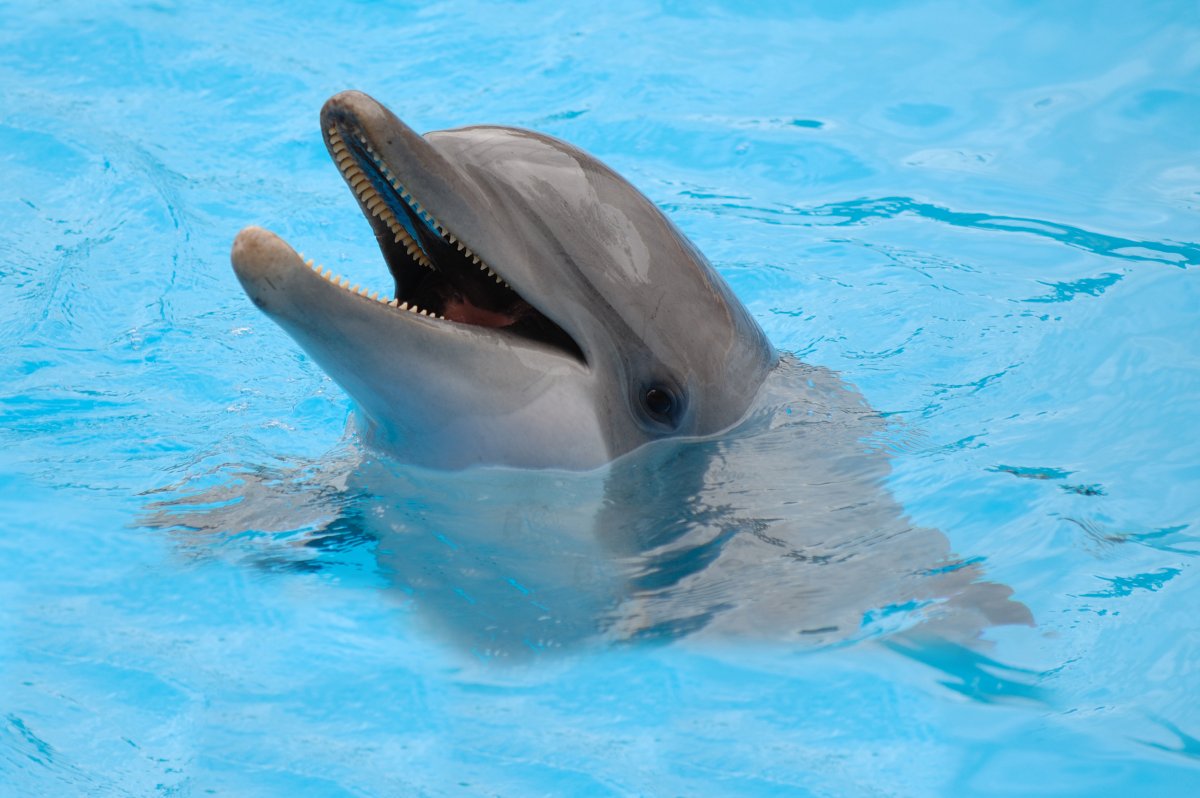A captive dolphin has died at a Swedish zoo after it ingested a piece of artificial seaweed that had been placed in its tank.
The dolphin named Nephele died at the Kolmården Wildlife Park on January 15. An autopsy completed on March 13 showed that the fake seaweed became lodged in her throat and prevented her from breathing.
The dolphin was taken from the wild near Florida back in 1989, when she was around 9 years old, according to wildlife charity Whale and Dolphin Conservation (WDC). Kolmården then purchased her from another zoo in Germany in 1994.
Bim Boijsen, chief veterinarian at Kolmården, told Newsweek that staff at the park were "deeply saddened" by what happened to Nephele.

"According to the autopsy, Nephele had ingested some of the artificial seaweed used as environmental enrichment. The piece of seaweed had unfortunately become positioned in such a way that it affected her breathing. Of course, we take this seriously and are deeply saddened by what has happened," Boijsen said.
"Enrichments are important for providing animals with a stimulating and dynamic environment. We have now taken several measures to prevent anything similar from happening again. We have removed the seaweed from the pool, increased our checks on enrichment and are in the process of developing and improving documentation to make it easier to detect deviations."
The keeping of marine mammals such as dolphins in captivity has long been a controversial subject. Organizations like WDC are actively working on campaigns against keeping the animals in tanks.
Dolphins are incredibly intelligent creatures and thrive on social interaction with others. Animal welfare advocates have noted that a tank in a marine park cannot possibly provide these intelligent creatures with enough stimulation.
"Like us, dolphins need to come to the surface to breathe, and choking in this way must have been a traumatic experience for Nephele," Danny Groves, head of communications at WDC told Newsweek.
"Instead of trying to make the captive environment more like the wild—a pointless pursuit—why not just leave whales and dolphins in the ocean where they belong, with their families and social groups, and plenty of real seaweed?"
According to WDC, over 60 dolphins have died at Kolmården since they first started theatrical dolphin shows in 1969. The charity also noted that the park was supposed to shut down its dolphins exhibit two years ago, however it is still up and running. The park still has 11 resident dolphins.
"It is difficult to comprehend why some still see keeping whales and dolphins in captivity for our entertainment as a good idea. Nephele would have been perfectly happy roaming for miles each day wild and free in the ocean. But after being snatched from the sea at the age of 9, she endured a life or boredom in a small tank," Groves said.
"Her tragic death is a chilling reminder of why captive whale and dolphin shows should be phased out for good. Swimming endlessly in circles, some lie on the floor of their tanks for many hours, chew on the sides of the pool and repeat the same patterns of behavior over and over.
"A life so devoid of natural stimulation that staff at this facility had to add fake seaweed to the tank for 'environmental enrichment' reasons and, presumably, to visually enhance the shows that Nephele performed in," Groves said.
Do you have a tip on a science story that Newsweek should be covering? Do you have a question about dolphins? Let us know via science@newsweek.com.
Uncommon Knowledge
Newsweek is committed to challenging conventional wisdom and finding connections in the search for common ground.
Newsweek is committed to challenging conventional wisdom and finding connections in the search for common ground.
About the writer
Robyn White is a Newsweek Nature Reporter based in London, UK. Her focus is reporting on wildlife, science and the ... Read more
To read how Newsweek uses AI as a newsroom tool, Click here.






